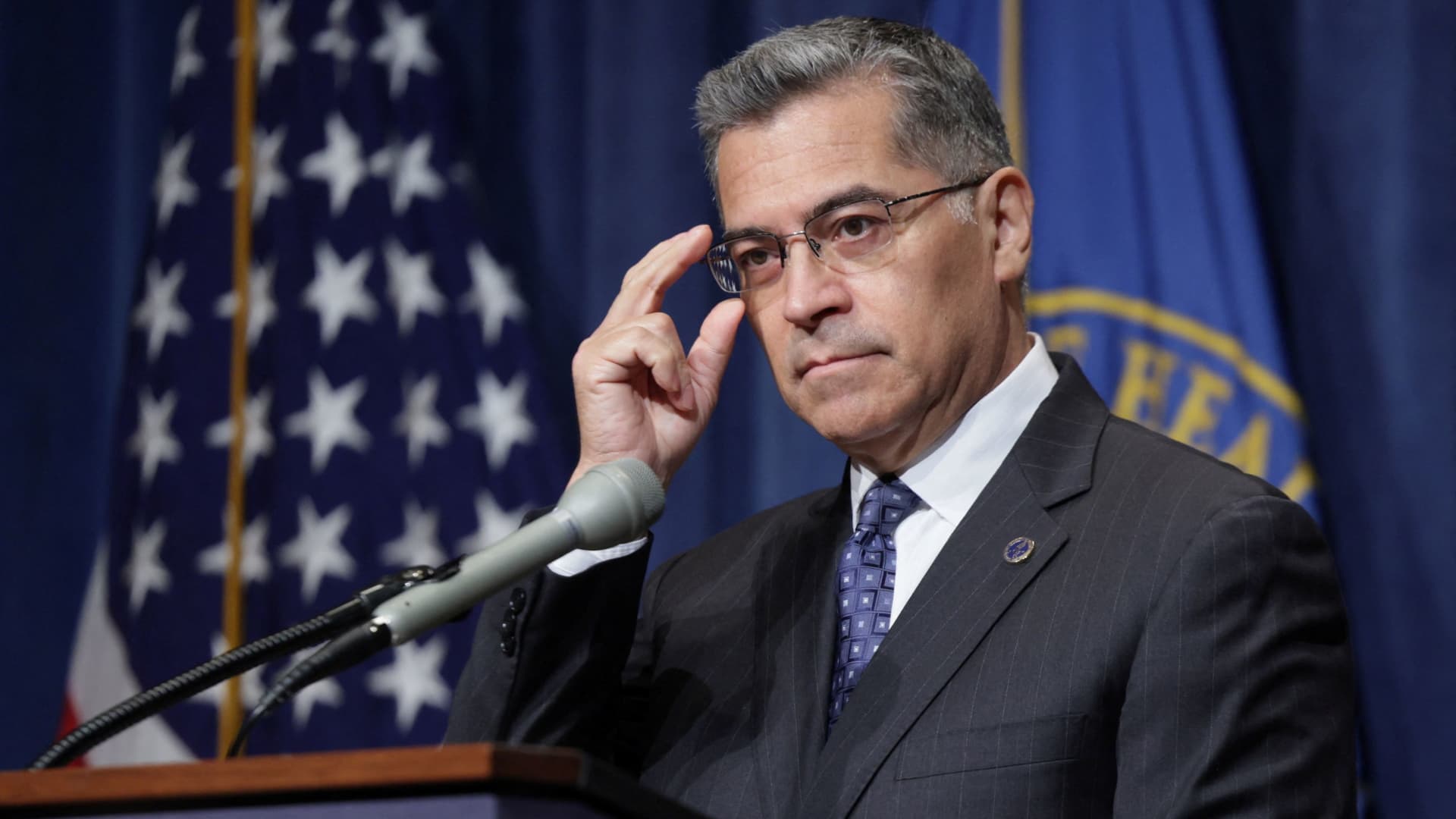HHS secretary vows women in states that ban abortion will have access in cases of rape or incest
U.S. Health and Human Services Secretary Xaviar Becerra holds a news conference to unveil the Biden administration’s action plan following the overturning of Roe v Wade, at the Department of Health and Human Services in Washington, U.S., June 28, 2022.
Evelyn Hockstein | Reuters
Health and Human Services Secretary Xavier Becerra on Tuesday directed federal health agencies to ensure victims of rape and incest in states where abortion has been banned have ready access to medication that terminates pregnancy.
Becerra told reporters that federal law requires HHS programs to grant abortion pills in exceptional circumstances, such as when the life of the woman is at risk or in the cases of sexual assault.
That obligation, he said, takes precedent over the abortion bans that some states have imposed in the wake of the Supreme Court’s decision last week to overturn the landmark 1973 Roe v. Wade decision.
“Five Americans decided to use the vast power bestowed upon them by our democracy and our constitution to unconscionably put at risk the life and health of millions of our fellow Americans,” Becerra said at a press conference.
“HHS has been preparing for this for some time,” he continued. “There is no magic bullet. But if there is something we can do, we will find it and we will do it at HHS. Indeed, that was the instruction I received from the president of the United States.”
The high court’s decision to reverse its Roe ruling that protected a woman’s constitutional right to terminate a pregnancy sparked outrage nationwide among supporters of abortion access.
But it also set off a wave of confusion as a handful of states immediately banned all forms of abortion and imposed prison sentences for health-care providers who perform the procedure.
However, those states prohibit the prosecution of women who receive abortions, suggesting that many with unwanted pregnancies may still able to receive abortions at home with medication purchased online from international telehealth companies.
Aid Access, one such global abortion provider, told CNBC it will continue mailing pills that terminate pregnancies to women in all U.S. states.
The Food and Drug Administration first approved the abortion pill, mifepristone, in 2000 and the drug is approved in the U.S. to end pregnancies before the 10th week of pregnancy. Use of medication abortion is increasingly common in the U.S. and in 2020, it was used in more than 50% of abortions across the nation, according to a survey of all known providers by the Guttmacher Institute.
Becerra declined to go into further detail on just how aggressive the federal government will be in fighting states’ abortion restrictions outside of cases where the life of the women is jeopardized or the unwanted pregnancy is the result of sexual crime.
“We are going to stay within the confines of the law,” he said.
He’s additionally directed the agency to look at its authority to ensure doctors and hospitals are can treat pregnant women who are miscarrying or have complications in whatever way they deem is medically necessary. He also said Medicare and Medicaid will take every “legally available step” to ensure patients have access to family planning resources, “including emergency contraceptives, and long acting reversible contraceptives such as IUDs.”
The Health secretary added that he’s directed the Office for Civil Rights within HHS to ensure patient privacy for those seeking reproductive health care, as well as for providers who offer reproductive health services.
— CNBC’s Spencer Kimball contributed reporting.
For all the latest business News Click Here

